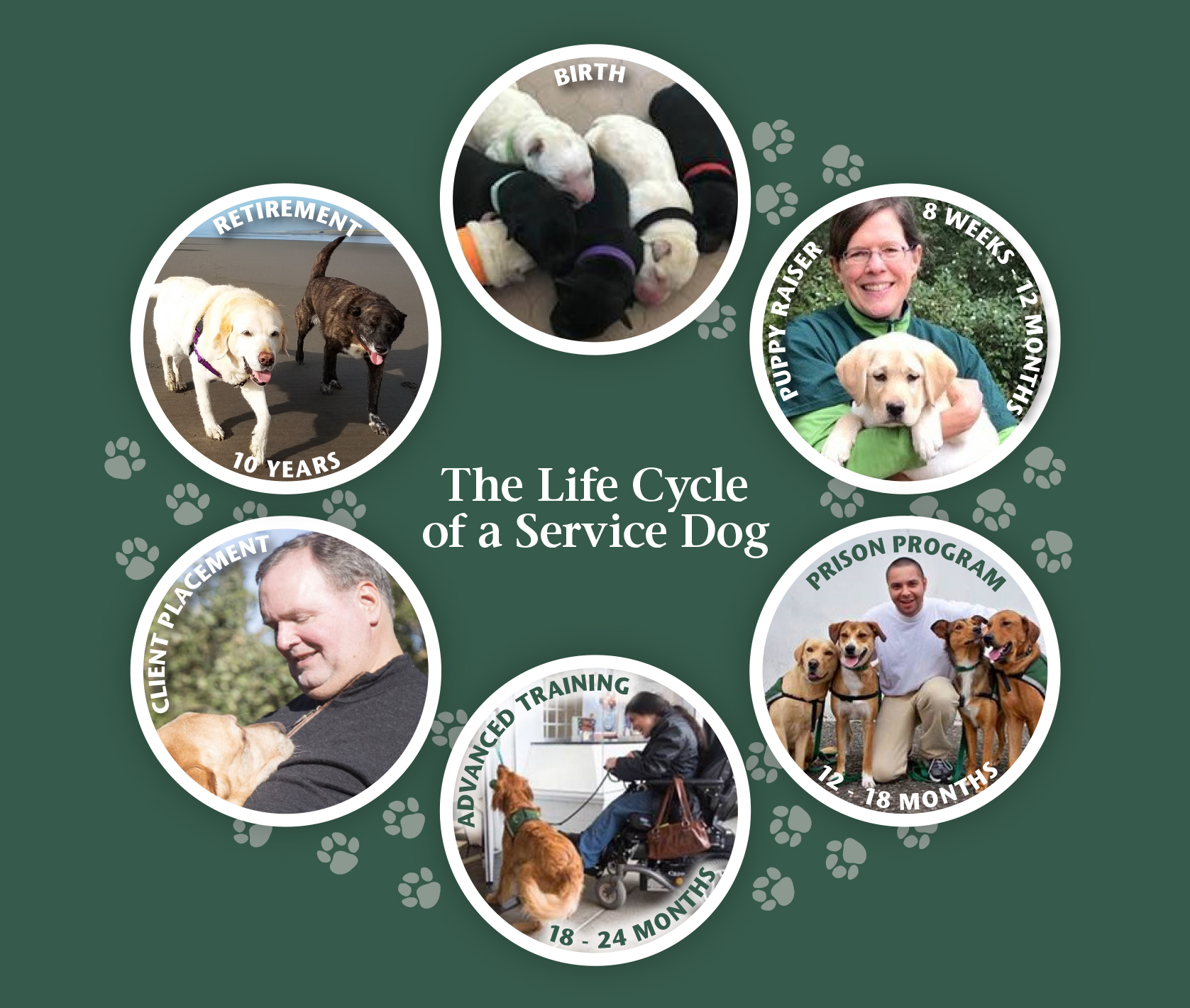General
-
Summit was founded in March 2000 by Sue Meinzinger, a graduate of the Assistance Dog Institute in Santa Rosa, California, in response to the overwhelming need for more assistance dogs.
-
We do not charge our clients for their service dog. The majority of our funding is from generous individual donors. We also receive funding from corporate donors, organizations and foundation grants. Our graduates are vital in assisting Summit with fundraising, both with their personal donations and by helping us find new supporters. We receive no government funding. CLICK HERE TO DONATE!
-
Summit is a 501(c)(3) non-profit organization, and donations are tax deductible to the extent allowable by law. Our Tax ID Number is 91-2048706.
-
Summit provides highly-skilled assistance dogs for people with disabilities that significantly affect their mobility. We also make educational presentations for service clubs, churches,community groups, and businesses.
-
We have partnered more than 120 dogs with people living with disabilities since 2000. Read more about our recent graduates.
Applying For A Dog
-
The first step is to read our Apply for a Dog page thoroughly and become familiar with our process and our requirements. Then you contact us, preferably by e-mail to info@summitdogs.org, and provide a brief description of what kind of assistance dog you are interested in. If we determine that we can meet your needs and that you are a good candidate for a service dog, we will send you an application packet to complete and submit to us.
-
We are willing to discuss placement anywhere. However, graduating with a Summit dog requires many trips to our facility in northwestern Washington State at the recipient’s expense, so we normally find that people who live far from us are happier finding organizations closer to their homes. We typically place dogs within Washington, Oregon, and Idaho, along with British Columbia.
-
This is a difficult question to answer, because there are many factors involved in making the right match of an applicant with a service dog. Some people wait as long as two to five years; others may wait only six months. Placements are not on a first-come, first-served basis, but rather on the appropriate match of skills and temperament. We do our best to make successful matches as quick as possible.
-
No, we do not charge our applicants for a dog. We do, however, ask our applicants to contribute as they are able and to help with fundraising efforts for our organization.
-
No. We do not offer any kind of guarantee of successful placement. There are too many variables involved to do so.
-
Yes. In fact, we encourage it. We do ask, however, that if you know you are getting a dog from another organization, you let us know so we can take you off our waiting list.
-
No. Summit trains only mobility assistance dogs. We do not train people’s own dogs.
Summit does not train dogs for people needing assistance with Counterbalance, Autism, PTSD, Anxiety/Depression, Dementia, Seizures, other medical alerts, or hearing and vision disabilities. We currently do not train facility, therapy, ESA, or personal dogs.
-
No. We only train dogs we select specifically for our program, and will only certify dogs who have gone through our training program.
Dog Selection
-
We use mostly Labrador and Golden Retrievers or mixes thereof; however, we consider other breeds on a case-by-case basis.
-
Yes, Summit has a breeding program and is also a member of the Assistance Dogs International Breeding Cooperative. We collaborate with service dog programs around the USA and Canada to produce the healthy, confident puppies we need to best serve our clients.
-
Summit dogs are trained using positive reinforcement (food, praise, play) to shape desired behaviors. Our goal is to have our dogs feel fulfilled by the work they perform.
We structure our training plans to meet the individual needs of each dog.
-
Dogs are typically in training for two years, first with their volunteer puppy raisers, then with Summit’s staff trainers for final training and placement. Some of our dogs, including those taken from shelters, spend time in our Prison Partnership Training Program, where they receive training in basic obedience and skills.
-
The average cost of acquiring, raising and training a service dog for about two years and providing lifetime follow-up care to our clients is many thousands of dollars for each dog. This includes the cost of dogs we bring into the program, but who are not able to complete our training program for health or behavioral reasons.
-
Summit is totally committed to finding every dog the right “forever” home. Some of our career-changed dogs may go on to other careers such as law enforcement or search and rescue. Some are available for adoption to loving homes as pets. An adoption fee is charged according to the breed of dog and the level of training it has.


